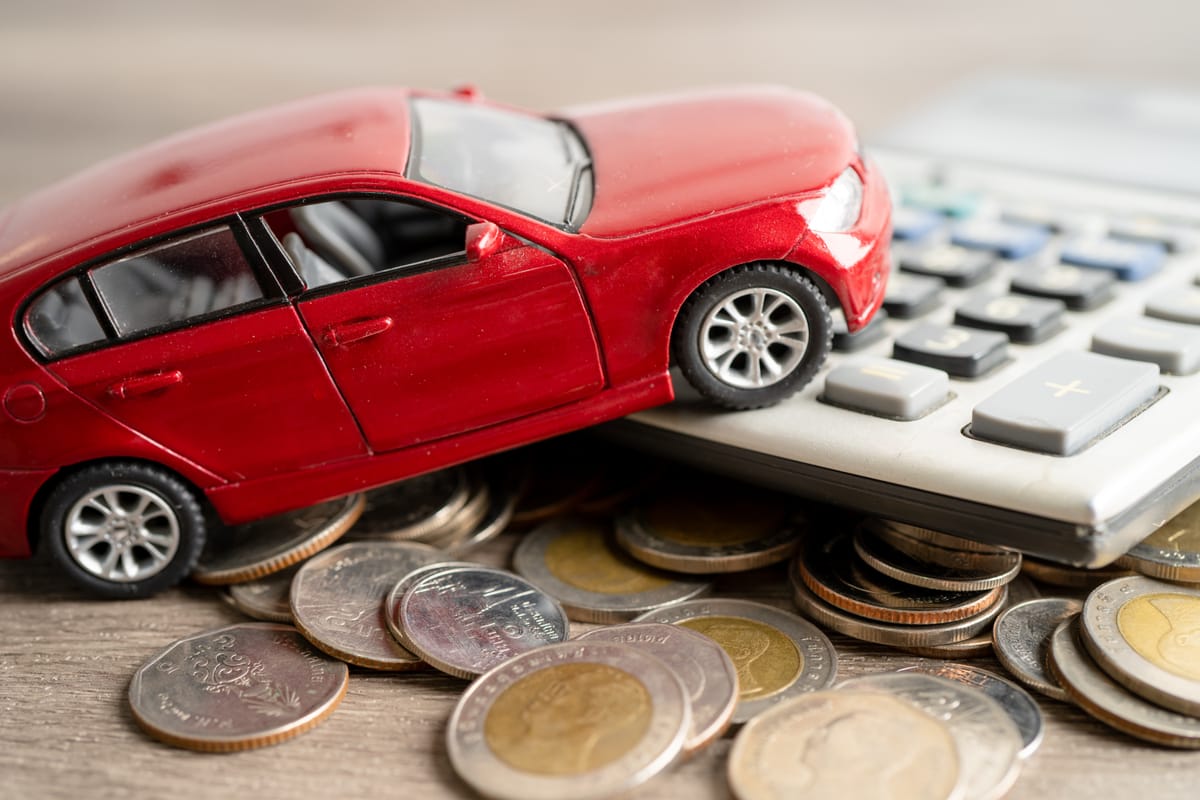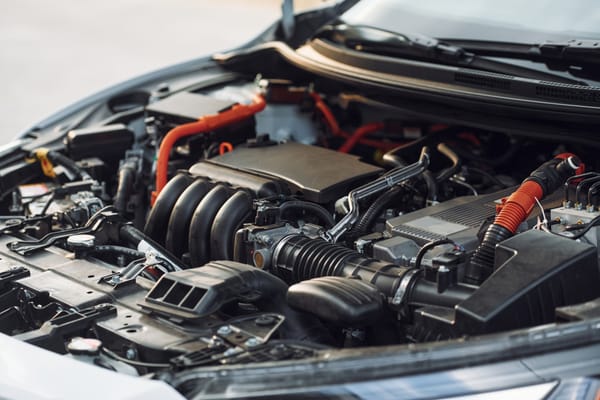How to Reduce Your Car Loan Costs Without Refinancing

Most Kenyans think car loans are set in stone. You sign, you pay, unakazwa for the next 3-5 years. End of story.
But here's what lenders don't advertise: you have way more control over your loan costs than you think.
And you don't need to refinance to save serious cash.
From the moment you start shopping to your final payment, you can make strategic moves. These moves can slash thousands, sometimes hundreds of thousands, off your total cost.
This isn't a theory. These are practical, proven tactics smart Kenyan buyers use every day.
Financing your first gari? Already paying off a loan? This Peach Cars guide will show you exactly how to take control and keep more money in your pocket.
1. Start Smart: How Your Deposit Shapes the Whole Deal
Your deposit isn't just the entry ticket to car ownership. It's the single biggest factor in your loan's total cost.
Here's how it works.
- Many Kenyan lenders commonly ask for deposits in the 20–40% range, but exact requirements vary by lender and borrower profile.
- The more you put down, the less you borrow. The less you borrow, the less interest you pay.
But it's more than just math.
- Lower loan-to-value (LTV) ratios can get you better rates. Lenders see bigger deposits as lower risk.
- Finance 60% instead of 80%, and some lenders will knock 1-2% off your interest rate.
- That 2% sounds small? On a Ksh 1.5M loan over 4 years, it saves you over Ksh 120,000.
A bigger deposit also means:
- Lower monthly payments. This gives you breathing room and reduces default risk. Less stress, more flexibility.
- You build equity faster. You own more of your car, sooner.
- Avoid being "underwater". If you need to sell, you're less likely to owe more than the car is worth.
Let's use real numbers:
- Scenario A: Buy a Toyota Harrier for Ksh 2 million car with a 20% deposit (Ksh 400,000).
- You borrow Ksh 1.6 million at 15% interest over 48 months.
- Total interest paid: Ksh 540,800.
- Scenario B: Same car, but you save up a 35% deposit (Ksh 700,000).
- You borrow Ksh 1.3 million at 13% interest (a better rate for lower LTV).
- Total interest paid: Ksh 389,600.
By increasing your deposit by Ksh 300,000, you save Ksh 151,200 in interest alone. Plus, your monthly rate is Ksh 9,400 lighter.
The lesson? If you can wait a few more months to save a bigger deposit, do it. Your future self will thank you. Check out verified used cars at Peach Cars while you save—you can plan better when you know exactly what you're aiming for.
2. Loan Term Length: The Hidden Trade-Off Between Comfort and Cost
Long loan terms feel so good! Lower monthly payments, less financial pressure, right?
Not exactly.
Here's the trade-off nobody explains: the longer your loan term, the more you pay overall. At the end of the day, it's that simple.
Most car loans in Kenya run between 24 and 60 months. The sweet spot for balancing affordability and cost is around 36-48 months.
Here's what happens when you stretch things out:
- Example: Ksh 1.2 million loan at 14% interest.
- 36 months: Monthly payment = Ksh 41,000. Total interest = Ksh 276,000.
- 48 months: Monthly payment = Ksh 32,800. Total interest = Ksh 374,400.
- 60 months: Monthly payment = Ksh 27,900. Total interest = Ksh 474,000.
Going from 36 to 60 months "saves" you Ksh 13,100 per month. But it costs you an extra Ksh 198,000 in total interest.
That's enough for a new boda boda or some years of full comprehensive insurance.
So what's the plan?
Choose the shortest term you can comfortably afford. Don't stretch yourself so thin that one bad month puts you in default.
But don't get seduced by low monthly payments either.
Run the numbers with online calculators. Compare the monthly cost versus the total cost. Then make an informed choice based on your actual budget.
If your income is stable, go shorter. If your cash flow is unpredictable (common for freelancers), a moderate term is smarter. You can always make extra payments.
The Power of Early and Extra Payments
This is where you really beat the system.
Most people don't know this, but making extra payments on your car loan can save you massive amounts of interest.
Here's why. Interest grows on your remaining balance - when the interest structure is reducing balance. The faster you reduce that balance, the less interest piles up over time.
Under Kenyan law, you have the right to make partial prepayments or settle your loan early without penalty, as per the Consumer Protection Act (Cap 501, Section 62). Some lenders may still attempt to charge a fee, but this is not enforceable for consumer loans. Always refer to your loan agreement and cite the law if needed.
- Example: You have a Ksh 1 million loan at 15% over 48 months. The monthly payment is Ksh 27,800.
- Total interest over 4 years: Ksh 334,400.
- Now, say you throw an extra Ksh 30,000 at the principal every 6 months (from a bonus or side hustle).
- You could clear the loan in about 38 months instead of 48. You'd save roughly Ksh 85,000 in interest. Safi.
Here's how to make this work:
- Target the principal, not the payment. When you pay extra, specify that it should go toward the principal balance, not the next month's payment. Some lenders apply it to future instalments unless you tell them.
- Make extra payments early. You pay more interest in the early months of a loan. Extra payments during this period have the maximum impact.
- Automate it if possible. Some banks let you round up payments. Even an extra Ksh 2,000-5,000 per month compounds into serious savings.
- Check for penalties. Read your loan agreement kabla. If there's a penalty, calculate if you still save money. Usually, you do.
- Don't sacrifice your emergency fund. Lazima you have a cushion. Having cash on hand prevents you from defaulting if you hit a rough patch.
Negotiating Isn’t Just for the Car Price — It Works for Financing Too
Here's a secret: everything in a loan agreement is negotiable. Interest rates. Processing fees. Valuation charges. Insurance requirements.
Most Kenyans don't know this. Banks present loan terms like they're carved in stone. Wapi. They're not.
- Interest rates are the big one. Rates in Kenya can range from 12% to over 20% per annum for saccos and commercial banks to highs of between 2.5% per month to 3.5% per month for microfinances. That's a huge spread.
- If you have a good credit score, stable income, and a solid deposit, you have leverage.
- Walk into the lender and ask: "What's your best rate for someone with my profile?".
- Then take that rate to another bank. See if they can beat it.
- Check SACCOs! They often offer lower rates than commercial banks. Microfinance institutions also compete aggressively especially on quick turnaround time and a flexible eligibility criteria.
- Don't just accept the first quote. Shopping around can save you 2-3% on your rate.
- Processing fees are negotiable too. They run 1-5% of the loan. On a Ksh 1.5M loan, that's up to Ksh 75,000 just for paperwork. Ask them to reduce or waive it, especially if you're a loyal customer.
Insurance is another area. Banks often require comprehensive cover from specific partners. You can negotiate to use your own insurer if they meet the bank's requirements. This alone can save you tens of thousands annually.
Here's the strategy:
- Get quotes from at least 3-4 different lenders (Banks, SACCOs, MFIs).
- Compare not just interest rates, but the total cost including all fees.
- Use the lowest offer as leverage. "Bank X offered me 13%. Can you match or beat that?".
- Be prepared to walk away. This is your best tactic.
- Get everything you negotiate in writing. Verbal promises mean nothing.
Understanding Hidden Costs That Creep Up on You
The above aren't the only costs. Watch out for these hidden chums that hit most first-time financed car buyers.
- Insurance Loading: This can be a classic trap. The bank bundles the insurance premium into your loan. Then, they charge you interest on the premium. That Ksh 60,000 insurance becomes Ksh 75,000+. Pay your insurance separately if you can. But this can be helpful if you do not have insurance money upfront.
- Logbook Transfer Fees: These and registration costs can add a few thousands. Clarify who pays what before you sign.
- Tracking Device Requirements: Now standard for financed cars. Installation costs in the upwards of Ksh5,000, plus monthly fees of Ksh 1,000-2,000. That's up to Ksh 96,000 extra over a 4-year loan. Sometimes you can negotiate for the lender to cover installation or buy the tracker outright and skip the monthly fees.
- Late Payment Penalties: Most lenders charge 1-5% of your payment as a fee, plus daily interest. Miss a Ksh30,000 payment by 10 days, and you could owe an extra Ksh 2,000-3,000.
- Early Exit Penalties: If you decide to sell the car and clear the loan before the term ends, some lenders may mention an early exit penalty. However, Kenyan law protects you: under the Consumer Protection Act, you can settle your loan early without incurring penalties for fixed-term credit agreements.
How to minimise these:
- Set up automatic loan payments. Never miss a payment.
- Shop for your own insurance. Get quotes. Just make sure it meets the bank's minimums.
- Negotiate tracking device costs upfront.
- Read every line of your loan agreement. Look for penalty clauses.
- Budget for the total cost of ownership. Not just the loan. Include fuel, servicing, tracking, and parking.
Smart Ownership Habits That Keep Costs Down
Your job isn't done after you drive off the lot. How you manage the car impacts your total cost.
- Keep up with regular servicing. This might seem unrelated, but it's not. A well-maintained car holds its value better. If you need to sell before clearing the loan, it will cover more of what you owe. It also keeps your car compliant with NTSA roadworthiness standards.
- Maintain a clean credit record. Pay on time, every time. Your CRB score improves. This means better rates on your next car or if you refinance. One late payment can haunt you for years.
- Avoid modifications that reduce resale value. Custom paint jobs or extreme lowering might look cool, but they make your car harder to sell. A stock car in good condition moves faster.
- Build an emergency fund. Lazima. Life happens. Medical bills. Job loss. Having 3-6 months of expenses saved means you won't default on your loan when things go wrong. Defaulting is the worst possible outcome.
- Consider gap insurance for high-LTV loans. If you paid a small deposit and the car gets written off, your insurance payout (based on current market value) might not cover what you still owe the bank. Gap insurance covers that difference.
The Peach Cars Edge: Expert Guidance That Saves You More Than Money
Here's what we've learned at Peach Cars: the biggest mistakes happen before you even apply for the loan.
- Buying the wrong car.
- Overpaying.
- Financing a used car with hidden issues.
These aren't financing problems—they're information problems.
That's where Peach Cars comes in.
- Every car on our platform is thoroughly inspected and verified.
You're not gambling on a pretty face. You're buying a vehicle we've checked from bumper to bumper. No hidden accidents. No tampered odometers. No surprises that become your expensive shida six months in.
- Our transparent pricing means you know exactly what you're financing.
No inflated dealer markups that force you to borrow more than the car is worth. When your LTV ratio is based on honest value, you get better loan terms.
- We connect you with financing partners who compete for your business.
Instead of walking into one bank, you get multiple quotes. Competition works in your favor—better rates, lower fees.
- Our team guides you through the entire process.
What deposit makes sense? Which loan term balances cost and comfort?. We've seen it all, and we share that knowledge freely. Informed buyers make better decisions—and become long-term satisfied customers.
Financing a car requires just the right information, at the right time, from people who actually care about your outcome.
Ready to save serious cash on your next car loan? Browse verified, fully-inspected vehicles today. Start your stress-free car journey with Peach Cars.




